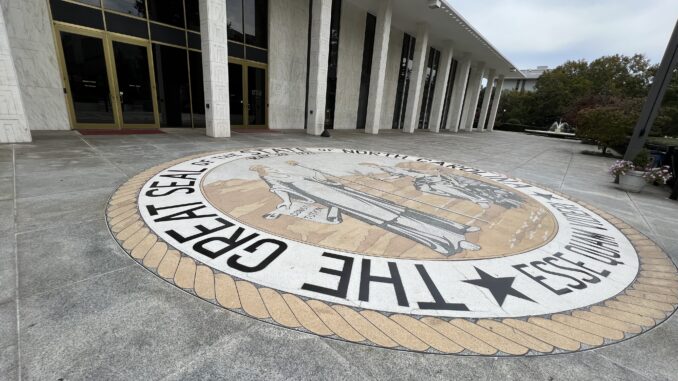
RALEIGH — A deal has been struck between the North Carolina House and Senate on additional funding for clearing the waitlist backlog for the Opportunity Scholarship Program, as well as an increase in funding for public school and community college enrollment and more Medicaid Rebase funds.
“As North Carolina families grapple with rising costs and economic uncertainty thanks to the failed policies of the Biden-Harris administration, it is our responsibility as lawmakers to remain committed to responsible spending and economic growth,” House Speaker Tim Moore (R-Kings Mountain) said in a press release. “This mini-budget agreement will fund our K-12 and community college enrollment growth, clear the Opportunity Scholarship waitlist to expand school choice to all NC families, will increase funding to keep our Medicaid system fully funded, and will authorize new rural broadband expansion across the state.”
Moore added, “With the inclusion of House Bill 10, we are also reinforcing the rule of law currently ignored by the Biden-Harris administration by requiring sheriffs to cooperate with ICE, strengthening our public safety and protecting our communities.”
“Families across North Carolina made it clear that they want a greater say in their child’s education. Whether you’re a single parent, a young family, or in a military household, educational freedom should be attainable for all,” Senate Leader Phil Berger (R-Eden) said. “This agreement addresses the increased demand for Opportunity Scholarships and includes the necessary funding for public school enrollment increases.”
House Bill 10, the conference budget report, also includes requiring sheriffs to cooperate with ICE and authorization for rural broadband expansion.
The bill was originally a stand-alone bill filed by Rep. Destin Hall (R-Caldwell) that would require sheriffs to cooperate with ICE on detainers for illegal migrants being held in criminal matters. With the departure of Moore, who is running for Congress, Hall is likely to become the next House speaker.
$248 million in nonrecurring funds are in House Bill 10 to clear the waitlist for the Opportunity Scholarship Program (OSP) which saw the largest ever number of families apply with over 72,000 applications. Another $215.5 million in recurring funds is included for scholarship awards for the 2025-26 fiscal year. ESA+ waitlists that cover children with disabilities were also addressed with $24.7 million recurring funds.
According to the press releases from the legislature, these funds would be “retroactive to the beginning of this school year,” and “families would be eligible for a tuition reimbursement from their school.”
The legislature had ended the short session without addressing the OSP 55,000-deep backlog, resulting in a rally held on July 1 with families demanding lawmakers “Keep Your Promise,” and fully fund the scholarships.
Per the Senate’s press statement, $64 million in recurring funds will go to Community College enrollment growth and $95 million in recurring funds will go toward K-12 enrollment increases.
Other spending items include $277 million in recurring funding and $100 million in nonrecurring for Medicaid, $55.1 million for infrastructure improvements and economic development support in Chatham County, and $150 million for “major transportation improvements” at the Randolph County megasite.
Additionally, a funding issue arising from the shift to an arrears-based funding model was addressed with $95 million in recurring funds for the 2024-2025 fiscal year for the ADM Contingency Reserve to fund growing public schools.
The arrears model used funding allotments based on the prior year’s enrollment and caused cash flow problems this year for schools with increased enrollment numbers for the current school year over the previous year.
The issue hit public charter schools particularly hard. The NC Association of Public Charter Schools issued a report to its members last month that said 87 charter schools (41.2% of all NC public charter schools) reported a projected total increase of 10,035 new students, or an average growth per school of 115 kids. That enrollment growth translated to an estimated $65,227,500 in needed state funding that was not present due to the new model.
The Senate will vote on the measure on Monday, Sept. 9, and the House on Wednesday, Sept. 11 at 2 p.m.
At a press conference on Sept. 6, Governor Roy Cooper held a press conference attacking the legislature over additional funding for the OSP.
“Republican legislators are returning to Raleigh to siphon hundreds of millions of taxpayer dollars out of public schools and give it to the wealthy through private school vouchers,” said Cooper. “This would be disastrous for our public schools and the future of our state. They should invest in public education instead so we can give teachers an overdue pay raise.”


